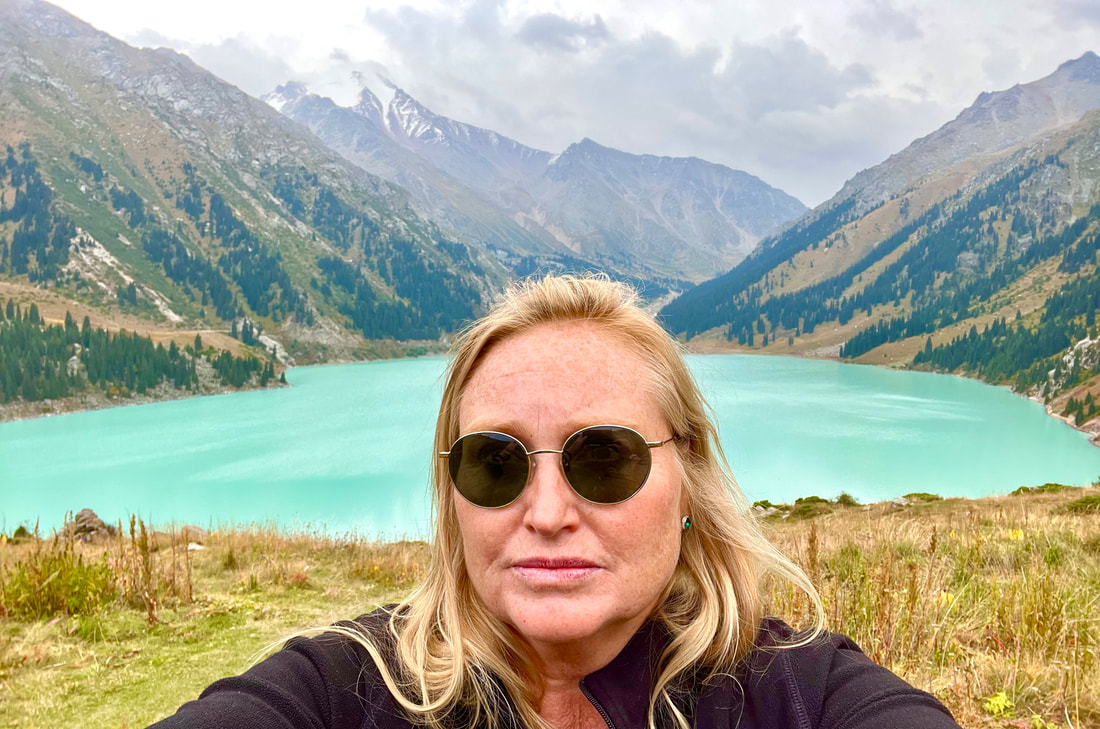|
It's always painful to me when a journalist admits he took money for a story. While this is highly unusual in the Western media, it happens quite often in post-Soviet countries, especially in Central Asia. The problem is arising now from a clash of cultures. While old style media is on the downward slide, a new style of blogging from amateurs is increasingly popular. These bloggers have no training as journalists. Many I've interviewed aren't interested in journalism ethics. They see no problem with taking money to support their work. But in several notable cases, Otabek Satoriy in Uzbekistan and now Makhambet Abzhan in Kazakhstan, taking money has put these amateur journalists/bloggers in severe jeopardy. Satoriy is already serving six years in prison. And though when he was initially arrested there was a large outcry that this was a muckraking journalist who was being suppressed by the government, eventually his unethical practices caused the media to turn the other way and drop support. Now, in Makhambet Abzhan's case, a similar situation is happening.
This is where I like to point out that old adage that if something appears to be too good, it probably is. I think Abzhan wanted to believe he'd won the lottery with this proposition. Instead he garnered a jail cell. Now, in order to free himself, he has to confess to his unethical practices. As his attorney says, “This is a case of a journalist who was being unethical. But it is not a criminal case. Abzhan did not extort.”
That argument may work in court. But it won't earn him supporters in the journalism community in Kazakhstan. This morning I corresponded with an editor of one of Kazakhstan's independent media outlets. The journalist told me that his outlet probably won't cover Abzhan's case anymore. "It looked like the authoritarian regime was trying to repress an independent journalist," the editor said. "Now it is a completely different story." I feel sorry for Abzhan. I feel sorry for his family, especially the woman he just married a month ago but whose marriage has not been officially registered. I suppose Abzhan felt he needed to come clean about what had happened. And if the proposal came from the businessman and not Abzhan, there isn't a criminal case. At this point, I'm sure Abzhan is more concerned about facing a possible eight years in prison. He's not thinking of how to restore his image as a journalist. That will come later. What other ethical journalists tell me is that cases such as Abzhan's make it harder for them to get the public to trust them. It makes their jobs that much harder in a place where getting people to speak out is hard enough as it is. I hope Abzhan is released from prison. And I also hope his case might be a warning to other bloggers who take money and see nothing wrong with their actions. July 4: American Independence Day
I've been in Kazakhstan for five days. The first journalist I contacted is Makhambet Abzhan, a freelancer and popular blogger in Nur-Sultan, the capital where my husband and I are staying for the next month. I was eager to meet Abzhan because he was one of the journalists who covered the protests in Kazakhstan in January in which more than 227 people were killed. Many journalists who covered the riots were arrested and detained. Abzhan disappeared for a week after the government accused him of igniting one of the riots. We agreed to meet on July 5 at a popular cafe. But on Monday, July 4, I discover that Abzhan has been arrested and is sitting in a Nur-Sultan jail on suspicion of extorting the equivalent of $107,000 from a wealthy businessman not to publish damaging information about him. I call Xeniya, my translator. She, my husband, Greg, and I rush off in a cab to a court house on the other side of the city. But when we arrive we are told that the government has changed the courthouse to one on the outskirts of the city —the exact opposite of where we are. It takes us half an hour to get there. When we arrive we learn the hearing has been delayed. Abzhan has insisted on appearing physically in court instead of virtually. Also holding up the hearing is that the government wants Abzhan's attorney to sign an agreement not to discuss the case publicly. Who ever heard of such a thing? He refuses. I interview Abzhan's attorney, his wife of three weeks, his attorney, and his supporters. No one can believe that Abzhan would ever extort money. So far this year he has prevailed in two court cases against him. Using the courts and charging journalists with crimes unrelated to their journalism is the most popular tactic in Kazakhstan to intimidate and silence reporters. The government tries to shame journalists into silence by charging them with pornography or tax evasion or theft—or extortion. Abzhan's hearing is rescheduled for the next day, July 5. That hearing lasts over three hours. The outcome is that the government has decided to keep Abzhan in jail for two months while it investigates the charges against him. Except it's unclear if the government has actually formally charged Abzhan. I update my story and go back and forth with the editor at midnight. Finally the story appears online. You can read it here. |
Fulbright in Central AsiaFrom March, 2022 to January of 2023, I was a Fulbright Scholar with the U.S. State Department in post-Soviet Central Asia. My previous Fulbright was in Ukraine. For the past six years, I have reported on journalists from post-Soviet countries who have experienced retaliation for reporting the truth. Archives
January 2023
|








 RSS Feed
RSS Feed
